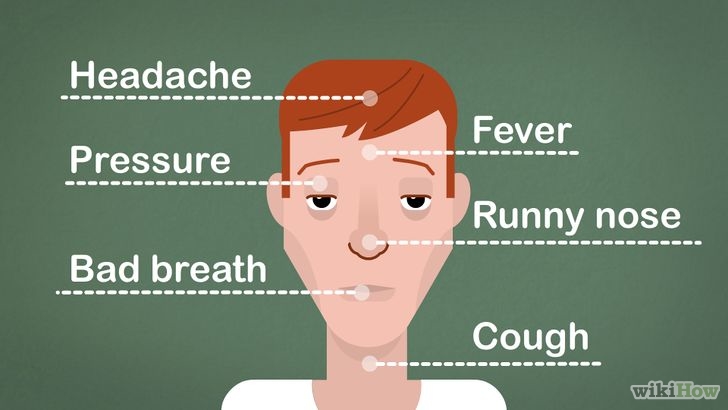
While it is true that the symptoms of what we call "allergies" today are triggered by an immune system response, there can also be anatomical or systemic issues that worsen or prolong these symptoms.
For example, there is a growing body of research that links the presence of allergy symptoms to other seemingly dissimilar pre-existing health conditions, including diabetes, multiple sclerosis, lupus, rheumatoid arthritis and other diseases that arise from compromised immune system function.
Far from being a reason to keep you from seeking allergy treatment, if you or someone you love has been diagnosed with pre-existing or autoimmune disorders and is also experiencing allergy symptoms, this is a reason to seek out treatment!
The Link Between Allergies and Immune System Dysfunction
One group of prominent researchers that studies the estimated 80+ auto-immune disorders that affect millions of people say there are important parallels between allergies and autoimmune disorders.
Their research targets similarities between how the immune system responds to known allergens (pet dander, pollen, mold and mildew spores, et al) and how the immune system responds to the body's own harmless tissues.
Whether the perceived threat comes from outside in the environment or inside the body itself, the immune system essentially malfunctions, identifies something harmless as a threat and goes to war against it.
In another recent exciting research initiative, scientists at the National Institutes of Health (NIH) published findings connecting a particular gene to the development of both allergies and auto-immune diseases.
Here again, whether the perceived threat is external from the environment or internal within the body, the immune system misidentifies it as a danger and harms the body trying to get rid of it.
Pre-Existing Conditions Can Help With Accurate Allergy Diagnosis
These research findings are still relatively recent, but already they are supporting faster and more accurate diagnosis and treatment of formerly complex allergy and health symptoms
In fact, according to allergy doctors, if you have pre-existing health or autoimmune disorders and are also suffering from allergy symptoms, it is vital to mention this to your allergy specialist as this can be an important part of the diagnostic and treatment process.
As the American Academy of Allergy, Asthma, and Immunology (AAAAI) reports, the more researchers look for links between autoimmune issues and allergies, the more links they find!
Many different genetic variables have now been identified that can help sinus allergy specialists pinpoint where the immune system response has gone awry and work to correct it over the long-term.
Allergies May Actually Trigger Autoimmune Disorders
Another older study published in Science Daily shares research to suggest that allergies may, in fact, pre-date the development of autoimmune conditions, rather than the other way around.
While it may seem like your allergies get worse once you are diagnosed with another condition, it may actually be your body's allergic response that triggers what they call an internal "relaxation" of the immune system response that then misdirects immune response towards essentially harmless targets.
Allergic Rhinitis Is Now Considered an Autoimmune Disorder
According to the European Centre for Allergy Research Foundation (ECARF), that oh-so-common issue of hay fever (allergic rhinitis) is now known to be an inflammation-triggered autoimmune disease.
Hearing this often really surprises our patients at the Sinus Center who seek help resolving (or at least reducing) attacks of seasonal hay fever. But allergic rhinitis can be triggered by more than just seasonal pollen – dust, dust mites, pet dander, mold, and mildew can all trigger hay fever symptoms as well, making it a year-round misery for many people.
The ECARF blames the rise in cases of hay fever on two key factors: worldwide environmental toxins such as tobacco smoke and smog/pollution along with genetic predisposition.
As proof, they cite the fact that allergic rhinitis is now known to begin as early as childhood. During this early period, the immune system is hard at work identifying (or misidentifying) a variety of threats, including pollen, dust, secondhand smoke, and others.
As the person grows up, the body becomes sensitized to more and more perceived threats and what used to be a mild seasonal allergy turns into a full-blown year-round autoimmune disorder.
Treatment for Allergies When You Have a Pre-Existing Condition
Even if your allergy symptoms seem to have only developed in recent years, chances are good they were brewing far earlier when you were a child or young adult.
When you have a pre-existing disease or autoimmune disorder and are also plagued with allergy symptoms, it is more important rather than less that you seek treatment to resolve your symptoms.
The more you can do to minimize immune system response and over-reaction to various internal and external perceived threats, the less stress your body will have to endure and the faster you can start feeling better.
Helping your immune system accurately distinguish between real and perceived threats can take time, but with precise diagnosis and a personalized treatment plan in place, you can begin to make progress almost immediately towards this goal.
Many new medical techniques are available today to help people suffering from chronic allergy symptoms ranging from food allergies to skin allergies to seasonal allergies feel better fast and improve quality of life.
About the Hudson Valley Sinus Center
Dr. Ran Y. Rubinstein is the founder and medical director of the Hudson Valley Sinus Center. Dr. Rubinstein founded the Hudson Valley Sinus Center to bring cutting edge medical research, technology, and knowledge to bear on even the most complex and baffling sinus health issues.
The presence of the Sinus Center in Hudson Valley has given rise to its nickname of "Sinus Valley." Patients come from around the state and country to seek out Dr. Rubinstein's unique approach to diagnosing and successfully treating chronic and acute sinus health conditions.

Be the first to comment